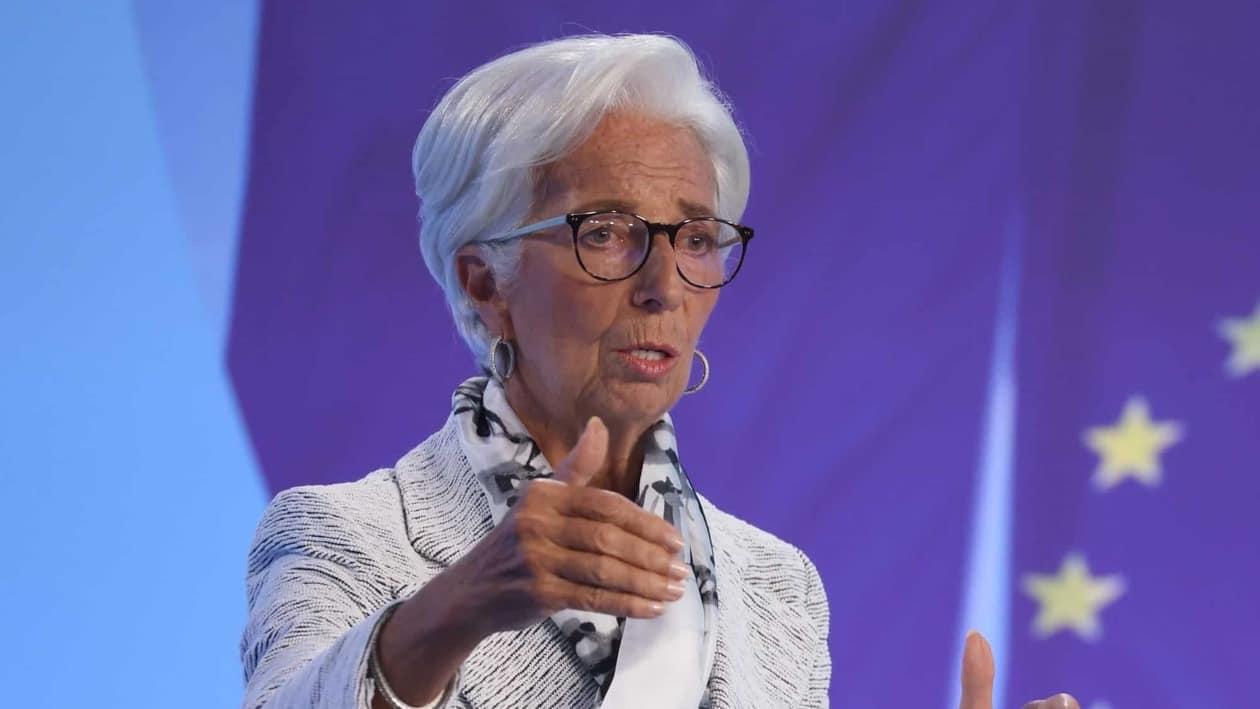(Bloomberg) Despite clear weakness in the economy, the central bank forecasts surprising growth in the region.
The European Central Bank is clearly awake to the threat of inflation. Thursday’s unanimous 75-basis point hike to its benchmark deposit rate is the largest in the ECB’s 24-year history. The era of negative rates is now firmly in the rear-view mirror. The bank’s forward guidance is dramatic: If necessary, more hikes will follow over the next few meetings into early next year.
President Christine Lagarde made clear that such big jumps would not be the norm; but she said that rates are still far away from a level that will return inflation to its 2% medium-term target. The euro failed to rally at the news but bond yields took notice of the hawkish message, rising modestly across the board.
What’s forced the hand of the ECB Governing Council is the hawkish mantra from the US Federal Reserve and the weakness of the euro, which is now below parity with the dollar. Speaking at the same time as Lagarde but across an ocean, Fed Chair Jerome Powell repeated that the US central bank will keep at its hikes until the job is done on inflation. That pulverizes the multi-step calibrated series of hikes counseled by ECB Chief Economist Philip Lane on Aug. 29.
And it leaves the hawks, led by Germany's two Governing Council representatives — Bundesbank Chief Joachim Nagel and Isabel Schnabel — in control.
There were no further details about the Transmission Protection Instrument, the ECB's purported weapon to prevent yield spreads between member countries widening too far. That’s a lot to leave to the imagination with the approach of the Sept. 25 parliamentary elections in Italy. There were also no alterations to the ECB’s 5 trillion euro ($5 trillion) stash of QE bond purchases. Quantitative tightening is a discussion for another day. Or perhaps the silence was a compromise with the doves so that everyone would vote for the historic hike.
There were some strange decisions made about bank funding: The two-tier system for commercial bank excess reserves deposited at the ECB was scrapped. Over recent years, the super-generous Targeted Longer-term Refinancing Operations have allowed banks to borrow freely at rates as low as minus 1%. Any spare cash can now be parked at +0.75%. That’s a free lunch for the banking system. But with rates lifting off zero, it is no longer practicable.
Now that the deposit rate is positive, the ECB is temporarily lifting its 0% ceiling and will pay a return to EU governments that have deposited abut 600 billion euros (roughly $600 billion) in cash at the central bank. This relieves some fear of a shortage of collateral and promotes the free flow of capital across the monetary system.
Germany and Austria have already made changes to their government bond repo markets to effectively garner a positive return, which has led to an increased squeeze on borrowing rates. But these stopgap measures are a bit messy and will have to be tidied up properly.
The economic forecasts the ECB released this week remain headscratchers. Although the inflation estimate for this year was revised up to 8.1% from 6.8%, it is still well below the current 9.1% pace. More worryingly, the inflation estimate for the end of 2024 has inched up to 2.3% from 2.1%. The ECB target is 2%. That’s one reason why the Governing Council believes a lot more hikes may need to be implemented.
The most bewildering revelations from Thursday’s press conference were the growth estimates. This year’s is being revised up to 3.1% from 2.8%. Really? In this economy? Even a downgraded estimate for next year at 0.9% doesn’t seem to be in touch with reality. The ECB is betting that there will be no recession in the euro zone. That’s a very bold call.
The ECB has decided to face the challenge of runaway inflation by proactively hiking interest rates. A potential consequence, however, is that the bloc’s fragile economy — barely recovered from the pandemic — may be propelled into a swift contraction. Let's hope the ECB has more wiggle room heading into winter, though it may be too much to bet that hope will triumph over experience.
(This column does not necessarily reflect the opinion of the editorial board or Bloomberg LP and its owners.)
